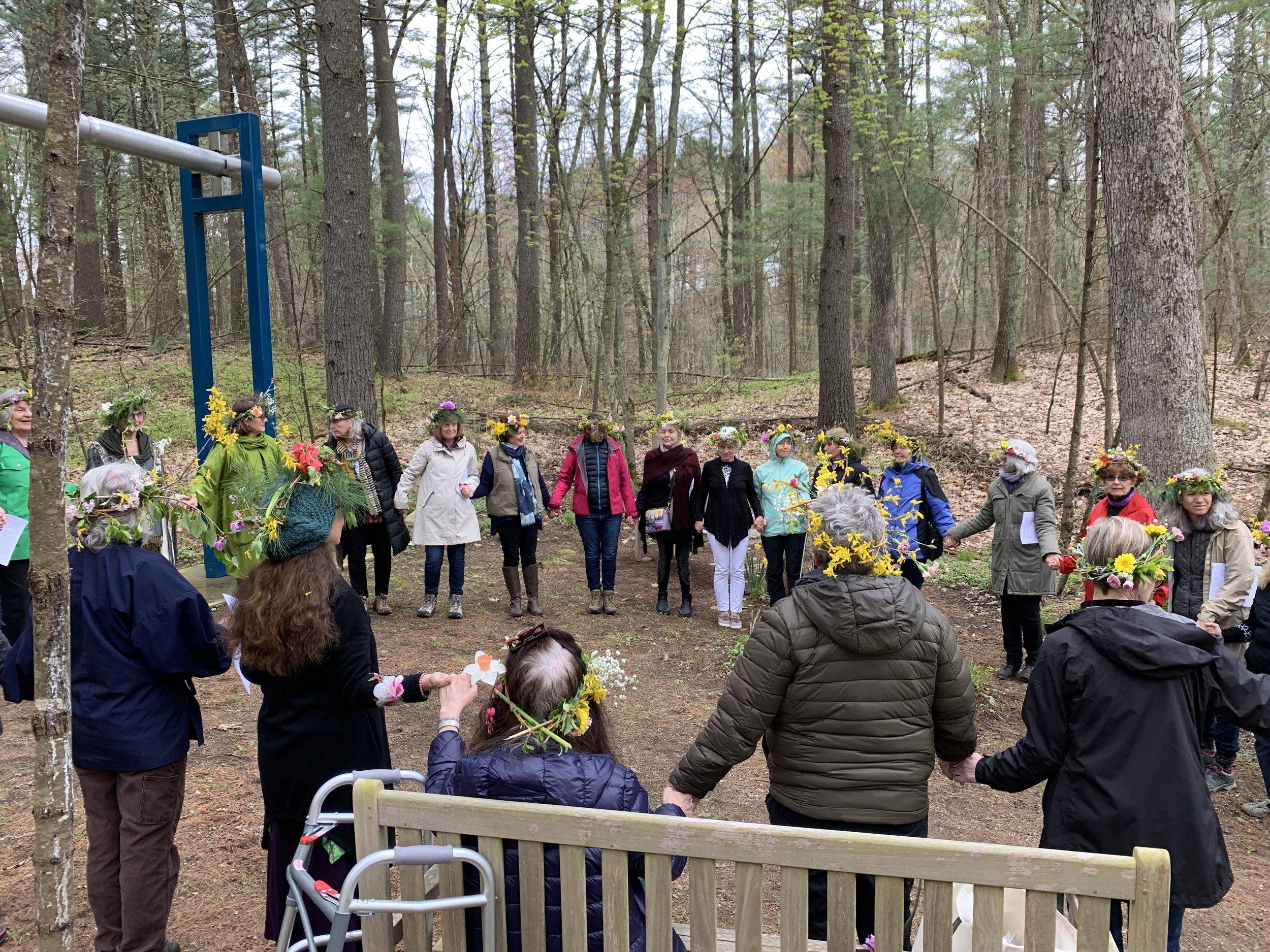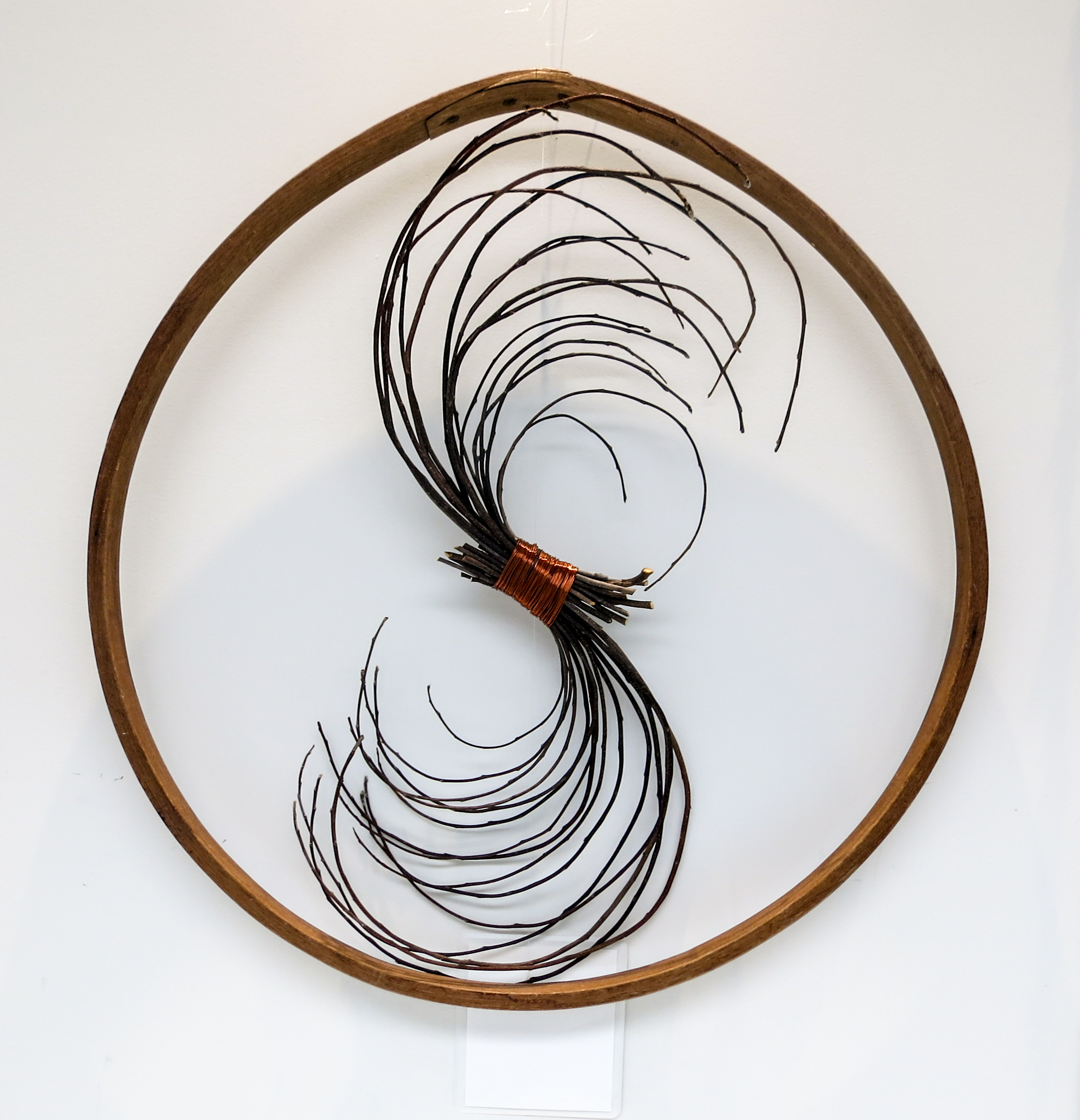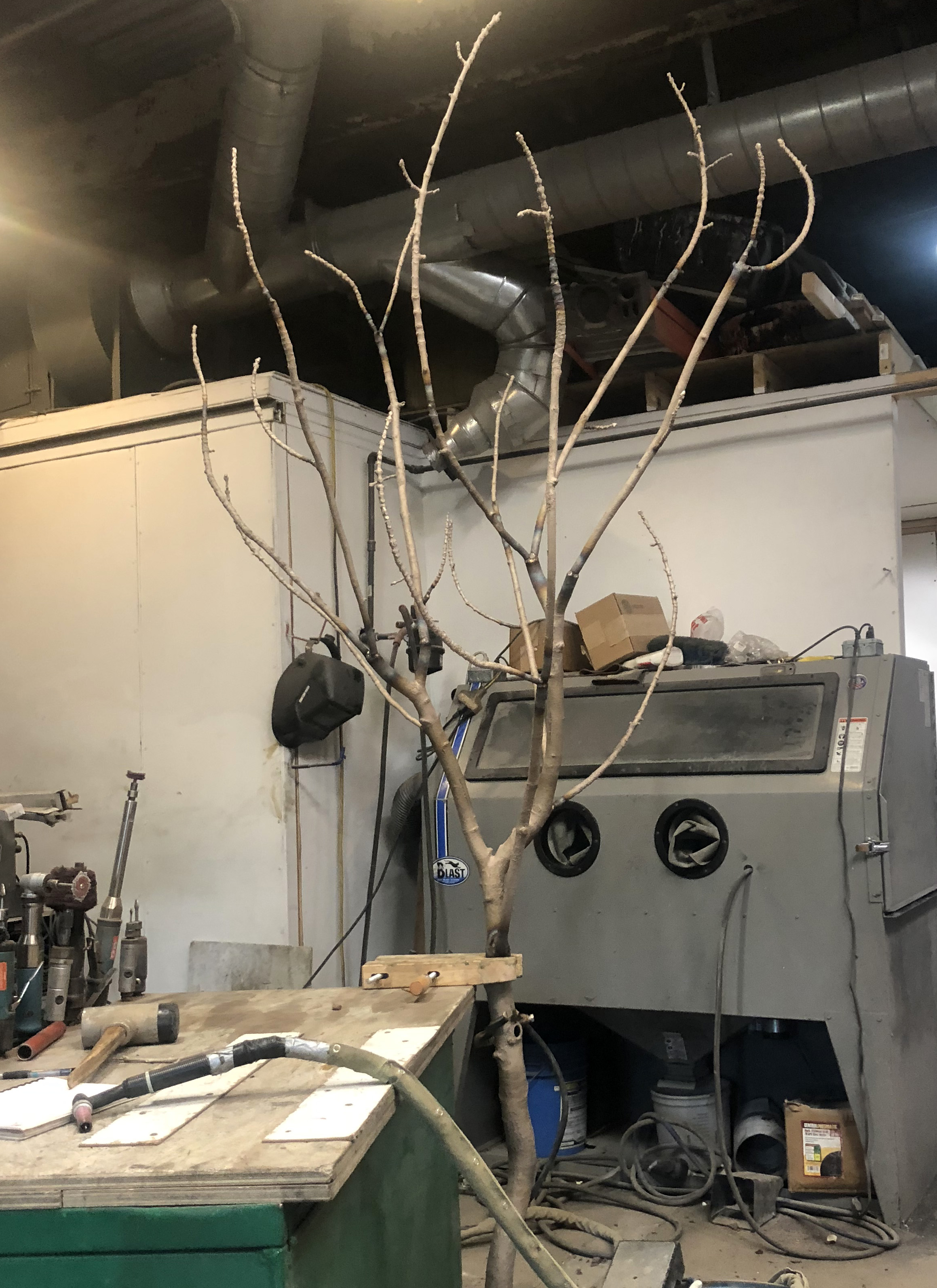It’s a rainy and cold Mother’s Day morning. I smile though, as I walk to the studio and meet two families of geese shuffling their puff balls away from my threatening presence. The tireless care of these geese parents for their young, the overprotection, their ceaseless devotion strikes me as radical. What if we offered this kind of care to the world?
This morning I have no sculpture installations, no farm workers, visitors, or meditators. I thought about what I wanted to do with my free morning—a yoga class for my body, meditation for the mind, painting for the muse. There has been so much doing in the last month. Good doing, yes. Caring for the trees and the land. Meeting and helping artists. Delicious lists of a new asparagus bed to dig, raspberries to weed, young apple trees to weed and mulch, potatoes to plant, mowers to fix, dead trees to take down, buried rice to feed (we’re growing our own effective microbes to inoculate compost and orchard teas) and so on. But writing this blog is not on my to-do list, it is not something I do and say, now that’s done. It grows from a particular seed of quiet with the shape and color that only comes from being alone. I have to weed the garden of its to-dos in order to uncover what is growing.
Last Sunday we had a Crone Ceremony for the first time at the farm. Thirty-three women gathered to celebrate and bless each other.
An Online Etymology Dictionary defines crone with a lot of negativity:
late 14c., "a feeble and withered old woman," in Middle English a strong term of abuse, from Anglo-French carogne "carrion, carcass; an old ewe . . ."
The defintion ends with:
Since mid-20c. The word has been somewhat reclaimed in feminism and neo-paganism as a symbol of mature female wisdom and power.
At our gathering, we made ourselves crowns with fresh forsythia branches and flowers. We joined to acknowledge the new shape of our lives as older women, as wise and creative women with enough experience to trust our intuition. We rang The Olympic Bell and listened as its deep note resounded through the grove of pine trees. We let go of habits that no longer serve our lives today by tossing a symbolic twig or stone into the current of the pond. We owned our creativity and freedom as we sang, Amazing Crones to the tune of Amazing Grace, and celebrated that we still have much to offer the world. We ended our ritual in a circle in The Medicine Wheel as each woman asked to be blessed, and the group chorused, We bless you, and spoke her name.
Like the cherry petals that have fallen, the flowers in our crowns faded quickly. I tossed mine into the woodstove the next morning. But, this week, the orchard apples opened their pink cloud hues and row upon row like trackless waves billow on every side. Will the Gods favor us with a good crop? Will the low temperatures forecast for Tuesday night freeze the about-to-open blossoms? Will bloom sustain the wind and rain long enough for the pollinators to do their work on the next sunny day?
Will our bodies trouble us too much so that we can no longer do the things we love? At our gathering we had one women who could no longer walk unsupported because of progressively debilitating Multiple Sclerosis. As she stepped with her walker into the middle of the circle, we felt her bravery and her struggle.
On this Mother’s Day, I offer a prayer for the earth and a blessing for our children and their children. May we do the work to provide good medicine to heal our beloved planet Earth. May we creatively cultivate the opening of all hearts for every sentient being. May we find the seeds of quiet to reconnect with what is important so that future generations will blossom and bear fruit.
We’re all mothers of the earth. Happy Mother’s Day!








